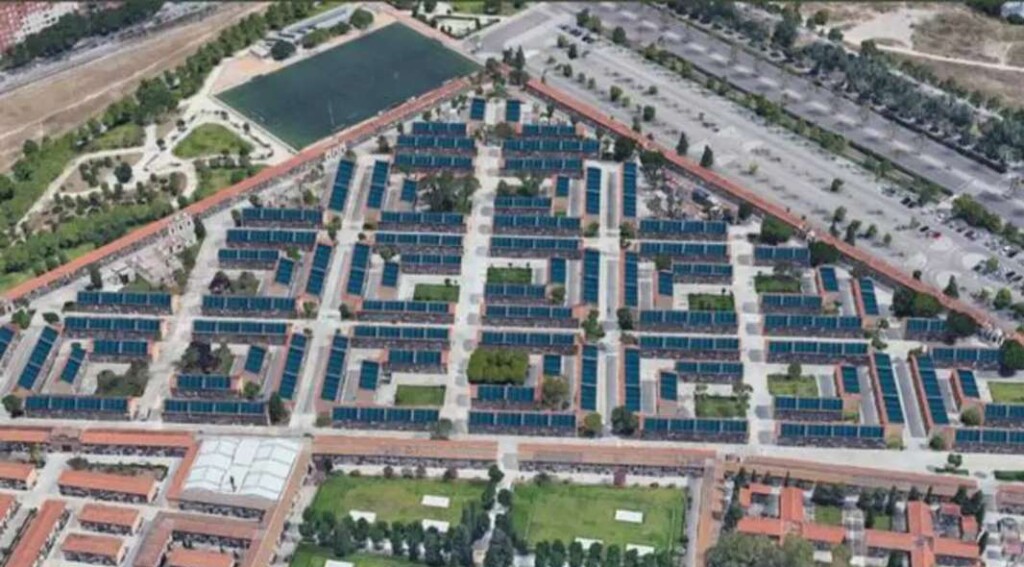 A rendering of the solar project – credit City of Valencia
A rendering of the solar project – credit City of ValenciaAnother European city has taken up the idea of utilizing the space over its cemeteries for generating solar power, a project it calls Requiem in Power, or RIP.
At the heart of Valencia, three cemeteries at Grau, Campanar, and Benimàmet will be outfitted with 7,000 panels to create the largest urban solar farm in Spain.
GNN reported in March that a town on the River Loire in France had initiated a community-led project to raise solar panel canopies to stop excess rainwater from flooding the sea-level town cemetery.
The town, Saint-Joachim, had to raise the money for the project through voluntary taxation as well as seek permission from residents, which wasn't a problem for former Valencia city climate councilor Alejandro Ramon who explained that the city owns the cemetery land and can do as they like.
But just to make sure they weren't walking over anyone's graves, they sought permission from the Catholic Diocese, who supported the idea.
“We suffer droughts and extreme heat. It’s necessary to speed up the transition, but sometimes in cities it’s difficult to find large free spaces to install renewable energy,” Ramon told Adele Peters at Fast Company. “After consulting with technicians they told me that the roofs of the niches were perfectly suitable for installing solar panels.”
MORE UNORTHODOX SOLAR PLACEMENT: Switzerland Set to Roll Out Solar Panels Between Railway Tracks–A World First
The niches that Ramon refers to are those above the mausoleums.
In an effort to speed up the transition, as Ramon said, Europeans are coming up with more and more inventive ways to install solar panels, including inside the terracotta roof tiles typical of a historic Italian or Greek roof, or on over 100,000 balconies and terraces in Germany.
SPANISH SOLAR MILESTONES: Spain Generates 50% of its Power From Renewables in 2023, With Portugal Set to Hit 100%
One benefit of a solar farm right in the heart of the city, as those above the cemeteries will provide, is that wattage isn't lost through the transfer of power from the countryside into the city on long power lines.
Far less additional transfer infrastructure needs to be built, and residents can be inspired knowing that their ancestors are still pulling their weight years after their deaths.
SHARE This Creative Use Of Land In A Spanish Metropolis With Your Friends…
Source link

